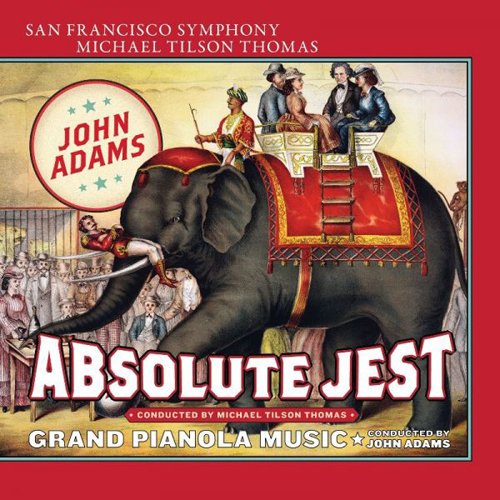How many tuba concertos are there? How many pieces are there where the guys from the heavy battalion can really shine as soloists? Well, possibly, here is one: this was the world première of Robin Holloway’s Europa and the Bull, billed as a concertante for tuba and orchestra. It is a joint commission between the Royal Liverpool Philharmonic and the San Francisco Symphony. But Liverpool won the toss to perform it for the first time in Philharmonia Hall.

If you’re going to employ tens of extra musicians for Strauss’s gigantic Alpine Symphony, it’s probably just as well that a few other "biggies" are programmed in the same concert. So it was at the Philharmonic Hall, where the Strauss shared the programme with a new orchestration of Tchaikovsky’s The Seasons as well as a selection of Canteloube’s haunting Songs of the Auvergne. All three pieces are evocations of a place or a season, so this whole concert was almost a musical novel or an orchestrated visit to an art gallery.

To keep a string quartet on the road for 20 years requires patience, devotion and staying power. Therefore the Wigmore Hall's participation in the celebrations of the 20th anniversary of the Belcea Quartet, which is being marked in several European concert halls, is fitting testimony to the achievements of these players. Last night's concert was the first of their London series.

This was Henryk Górecki beyond the Third Symphony. His otherwise ubiquitous masterpiece was notable by its absence from yesterday's programme. That was surely a conscious decision, and a wise one, allowing his many other important works to come out from its shadow. Górecki turned out to be an ideal subject for the BBC Symphony Orchestra’s “Total Immersion” treatment. His music gradually evolved throughout his career, from acerbic neoclassicism, to esoteric serialism, and then to austere minimalism.

 Adams: Absolute Jest, Grand Pianola Music San Francisco Symphony/Michael Tilson Thomas, with Orli Shaham and Marc-André Hamelin (pianos), Synergy Vocals (SFS Media)
Adams: Absolute Jest, Grand Pianola Music San Francisco Symphony/Michael Tilson Thomas, with Orli Shaham and Marc-André Hamelin (pianos), Synergy Vocals (SFS Media)

Nelson Goerner has settled rather gloriously into being a musicians’ musician. An artist of this calibre should be selling out the Wigmore Hall – but it wasn’t his fault that yesterday was Monday, and the pianophiles who turned out to hear him were rewarded with a rich and satisfying programme.

Performances of Mahler’s Tenth Symphony are rare, at least in Scotland. The programme note for this series of concerts by the BBC Scottish Symphony Orchestra records that the orchestra’s only previous performance was in 1978. Those I spoke to in the audience in the Usher Hall could not recall a performance by Scotland’s other symphony orchestra, the Royal Scottish National Orchestra (or SNO as it was previously), since way before that.

In 2007, Jiří Bělohlávek set the distinctive seal on his leadership of the BBC Symphony Orchestra and their ongoing Mahler cycle with a riveting performance of the Third Symphony. The legacy he established of a deep, well-moulded string sound which the orchestra didn’t really have before has left its mark on his successor Sakari Oramo’s even more impassioned attempt at the most epic of all Mahler’s symphonies.

Cards on the table: the City of Birmingham Symphony Orchestra is looking for a new music director. Having filled its new season with emerging talents – Andrew Gourlay, Daniele Rustioni, Ryan Wigglesworth and Ben Gernon, to name just four – it’s an open secret that any concert directed by a youngish, more-or-less unattached conductor in Birmingham for the foreseeable future is effectively an audition for the job. And don’t let anyone tell you otherwise.

Nothing will ever test the depth, breadth and sheer virtuosity of a large orchestra more than Mahler’s symphonies. It’s hardly surprising, then, that the two unsurpassable concert experiences, for me, have been Bernstein’s Mahler Five at the Proms and Abbado’s Lucerne Festival Ninth, or that the two London orchestras with the most consistently challenging conductors, the LPO under Vladimir Jurowski and the BBC Symphony Orchestra with Sakari Oramo, have chosen to open their new seasons with the two most experimental of the 10 symphonies on consecutive nights.

